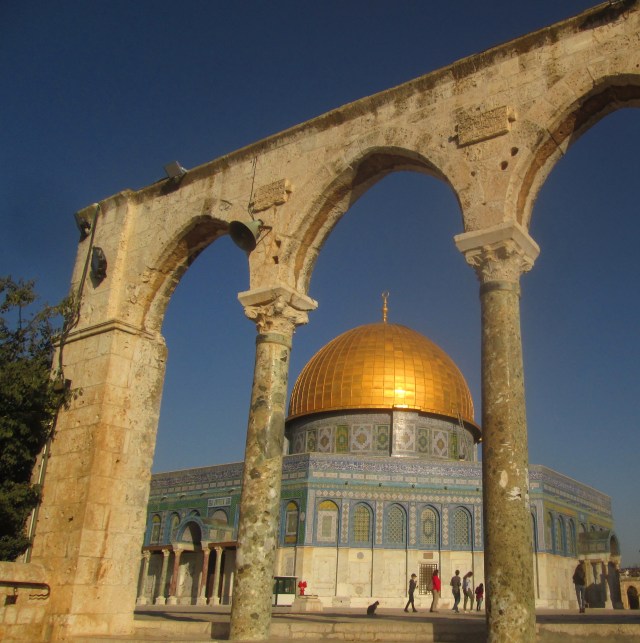
The following translation is of a short service devoted to Saint Moses (Mūsā in Arabic) the Black, one of the best-known and beloved saints from among the Desert Fathers of the late antique Egyptian desert wilds (and my name saint). He has been and is venerated all across the Orthodox world, with particularly strong veneration among Coptic Orthodox Christians, perhaps unsurprisingly given that Saint Mūsā, while of Ethiopian origin, lived most of his life and died in Egypt, following the trajectory of escaped slave, violent robber, repentant monk, and eventually priest and monastic leader. This service and the iconography above in fig. 1 come from a prayer book copied in 1745, almost certainly in Ottoman Egypt, entitled Kitāb al-salāmāt, which we might translate as ‘Book of Salutations’ or ‘Book of salāms,’ each prayer or short service- terminology is tricky here- devoted to a particular saint, with the unifying refrain of ‘Peace, O holy one of God,’ a phrase that could also be translated ‘Salutations, O holy one of God,’ on the model of Islamic devotional practice.
The language of this piece of devotional literature is Arabic, not Coptic, as by the early modern period Coptic was at most a liturgical language and was in fact even in that capacity as here often replaced or supplemented by Arabic, the language the average Coptic Christian spoke and, if literate, read and wrote. It seems likely to me that this is an original composition in Arabic, no doubt looking to Coptic exemplars (perhaps transmitted via translation), as there is no parallel Coptic text as is often the case with more ‘formal’ liturgical texts. While it is hard to pick up on in English translation, I have at points indicated in parentheses specific Arabic words with strong Islamic resonances, suggesting the extent to which Coptic Orthodox devotional culture and imagination intersected with Islamic, even if the end product was distinct from Islamic practice in a number of ways.

I do not know who would have used this devotional work, or exactly how, though it seems likely to me that it would have been for private usage (though a monastic or priestly use could not be ruled out), perhaps on each saint’s feast day, or perhaps on a more regular basis. The latter strikes me as more likely given the immense amount of wear and tear this manuscript displays (see fig. 2 above). Certainly like Islamic prayer books from the same period it is clearly written with the user in mind, employing an almost monumental script that is generally very easy to red, with rubrics (literally as they are in red!) scattered throughout. The history of devotional life among the Coptic Orthodox remains to be written, though there has been some important progress made in recent years (see this study as well as this one); much like contemporary Islamic devotional culture there is so far as I can tell no shortage of material but simply a lack of attention to it. Yet prayer books such as these served to facilitate devotion to the powerful and exemplary saints of God, through word and image, and as such should be seen as emanating from the very heart of Ottoman Coptic life and society. By distilling the life of the saints into a supplicatory format, the user of this manuscript could express his or her devotion to the saints, receive from their barakāt, and encounter inspiration towards a pious and holy life oriented towards God.

In the name of the Father and the Son and the Holy Spirit, one God.
Peace, O holy saint (anbā) Mūsā the Black! The blessing of his intercession be with us, amen. Peace to you O holy one of God, O saint Mūsā, O one upon whom God bestowed mercy and there came to him a holy thought so that he went to the place of saint Īsaydurus [of Skétét] the Priest.
Peace to you O holy one of God, O saint Mūsā, who bore the charge of saint Paul the Messenger (al-rasūl) and his teaching, saying, ‘Let us put aside from ourselves the weapon of error and gird up with the weapon of piety and repentance!’
Peace to you O holy one of God, O saint Mūsā, who sought God saying, ‘O Savior of the world who saved the thief that was upon the cross with Him, save me also for I have fled to You!’
Peace to you O holy one of God, O saint Mūsā, who stood six years never sleeping in the night, carrying out many acts of worship (‘abādāt) until he overcame the shayṭān of fornication!
Peace to you O holy one of God, O saint Mūsā, who used to fast constantly, eating nothing but a raṭl of dry salty bread, and praying fifty times every day!
Peace to you O holy one of God, O saint Mūsā, to whom God gave immense grace so that afterwards he had no fear of the shayṭāns, but rather they became in his presence like flies flying around!
Peace to you O holy one of God, O saint Mūsā, upon whom the Spirit of Holiness settled, and the mad were cured, shayṭāns driven out from the people, the sick healed, and many wonders worked!
Peace to you O holy one of God, O saint Mūsā, to whom God gave you the priesthood and gathered together to you five hundred monastic brethren in Dayr Barmūs!
Peace to you O holy one of God, O saint Mūsā, who seized the Kingdom of Heaven by force!
Peace to you O holy one of God, O saint Mūsā, you who fulfilled the ordinances of Christ and gave Him satisfaction with your pious deeds! Continue reading “Peace to You O Holy One of God, O Saint Mūsā, Who Seized the Kingdom of Heaven by Force!”

